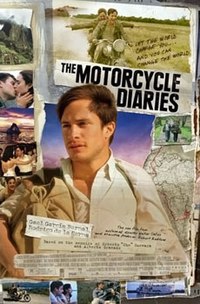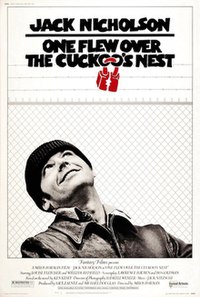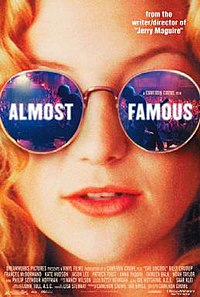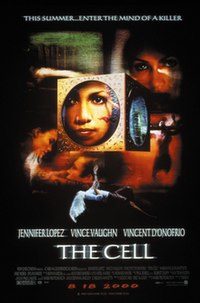To paraphrase a soft drink ad from the past, I eat, drink and sleep world cinema. It is one of the few things that keeps me from going mad from the endless tedium of research. I usually have my favorite films running in the background even if I’m doing something else. And come weekends I love to curl up on my couch and lose myself in film after film from around the world. So as you can imagine I’ve seen a LOT of films, especially in the past four years. And every time I see a film I think about posting a detailed review here but as usual my laziness trips my good intentions. So instead I’ve decided to come up with short blurbs for some of the remarkable films I’ve seen, enjoyed, loved and even disliked. So without further ado here is the first part in what will hopefully be a regular series:
1. Apocalypse Now Redux: A difficult film both in terms of production as well as viewing but it is worth all the trouble. One of Coppola’s best with Brando’s brooding presence adding to the other worldly atmosphere of the second half. War is indeed the preserve of psychotics. And seminal use of music, be it 60s rock and roll or Wagner. Look for the Redux version.

2. Full Metal Jacket: Another Vietnam War film but with the distinctive touch of Kubrick. The boot camp sequence is still one of the most intense cinematic moments I’ve seen on film. Kubrick extracts superlative performances from lesser known faces and captures the pointlessness and dark comedy of the Vietnam War perfectly.
3. Amadeus: F. Murray Abraham. Watch it for him. And the music. And the period detail. Enough said.

4. Frida: Hayek excels but the film suffers. All biographies are not equal.
5. Lost Highway: The twisted universe of Lynch. Anything and everything is possible. From surveillance video tapes to meetings with weird people in the desert. Will you be able to unravel the madness?

6. Mulholland Drive: Another Lynch masterpiece. And the hottest woman-woman love scene I’ve ever seen on film. That scene alone is worth the price of rental but the rest of the film is a tour de force of deception, betrayal and the cut throat hunger for fame.
7. Three Days of the Condor: Pollack at his finest. 70s paranoia translated brilliantly onto the screen. The enigmatic but very sexy Dunaway and quietly dashing Redford perform well.
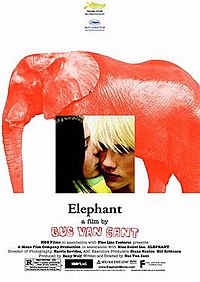
8. Elephant: Gus Van Sant’s sensitive exploration of the Columbine massacre. A chilling tale set in the world of seemingly normal school kids but madness is waiting to be unleashed.
9. Paris, Texas: Wim Wenders sometimes takes too long to get to the point but even then a brilliant film about love and loss set in Paris. No, not that one. The other Paris.
10. Miller’s Crossing: The Coen brothers are in fine form here. A brilliant film noir with really nice cinematography and strong story telling. The cast also shines.
11. Picnic at Hanging Rock: A breakthrough film for Australian cinema as a whole. Weir’s film is enigmatic, surreal and intensely moody. Leaves a lasting impression.

12. Silkwood: Based on a true story. Streep deserved an Oscar for her superb portrayal of a nuclear industry whistle blower.
13. The Hours: Superb screenplay and brilliant acting by three very talented women at the peak of their powers.

14. The Color Purple: Whoopi and Oprah excel in this film based on Walker’s celebrated novel. One of Spielberg’s more serious films.
15. A Fish Called Wanda: British humor at its best. More accessible than the Python films featuring many of the Python regulars. If you like black comedies then do not miss this.

16. La Chinoise (The Chinese Girl): Goddard is usually weird but this takes weirdness to a different level. Been ages since I’ve seen this film but still very vivid images remain from that viewing. Paris 68+Mao=Student Angst.
17. The Royal Tenenbaums: Perhaps the best Wes Anderson film. Everything works brilliantly in this. The screenplay, the hugely talented ensemble cast and the poignant but very funny story.

18. The Untouchables: Based on a true story. Sean Connery walks away with the film.
19. Freedom Writers: Another true story. Not the greatest of films but shows that all it needs is one person who believes.
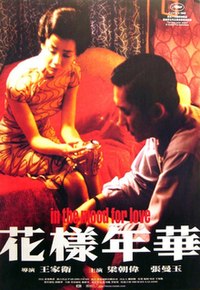
20. Fa Yeung Nin Wa (In The Mood For Love): Perhaps the film I’d want around if I was stranded on an island. Wong’s masterpiece on poignant love and melancholy. And the cinematography. Oh the beautiful cinematography! Each scene a superbly framed photograph. Doyle, you are god!
21. Adaptation: Clever, clever screenplay by one of Hollywood’s best screenwriters. The film that convinced me that Cage could act.

22. Pather Panchali (Song of the Little Road): So much has been said about this film. With good reason. A classic in every sense of the word. The simplicity, the realism as well as the romantic handled with such ease. Hard to believe that this was Ray’s first film.
23. Amores Perros (Love’s a Bitch): Inarittu’s hugely influential film. Multiple plot lines that intersect in often strange but natural ways. A very talented ensemble cast fleshes out the intricate screenplay with ease.
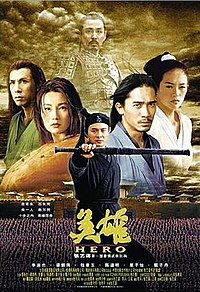
24. Ying Xiong (Hero): Another of Doyle’s stunning visual masterpieces. The fight sequences are like poetry in motion. The story and acting is thin. But that does not matter. The superbly choreographed and photographed fight sequences matter.
25. La Haine (Hate): Kassovitz’s raw film shows a Paris far removed from the glossies. The ghettos and the forgotten suburbs. The gangs and the violence. Watch it and you will understand a little why Paris later burned in 2005.

26. The Man Who Wasn’t There: The Coen brothers are master visual stylists. While this is not their finest effort (that is reserved for Fargo and perhaps O Brother..) watch it for some of the most gorgeous black and white cinematography I’ve ever seen. Billy Bob Thornton’s laconic presence is a bonus as is the always luminous Scarlett Johansson.
27. La Pianiste (The Piano Teacher): A disturbing film exploring the dark sexuality of a woman repressed by an overbearing mother. The ever beautiful Isabelle Huppert gets right into the skin of her character and delivers a chilling but stunning performance.

28. Eternal Sunshine of the Spotless Mind: An intelligent romantic film. This film proves that the previous sentence is not an oxymoron. Both Winslet and Carrey deliver imo the best performances of their respective careers. A wonderful, sad, melancholic but beautiful love story. Watch it with someone special.
29. Die Hard: Yes, I knew you would call this inclusion a blasphemy! But confess, how can you not love the unflappable (and indestructible) Mr. John McClane? One of the best adrenaline pumping, popcorn popping action films with superb and witty one liners.
30. Taxi Driver: Should I even say something?

[-] Show Less






